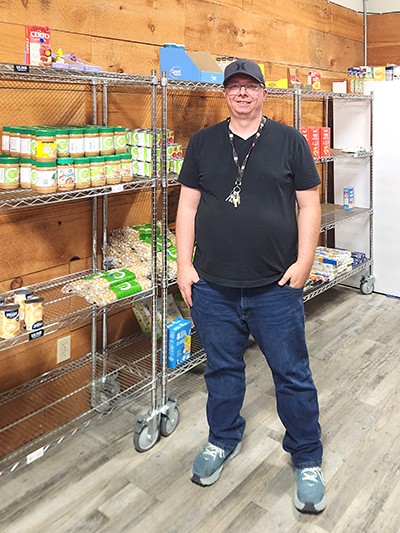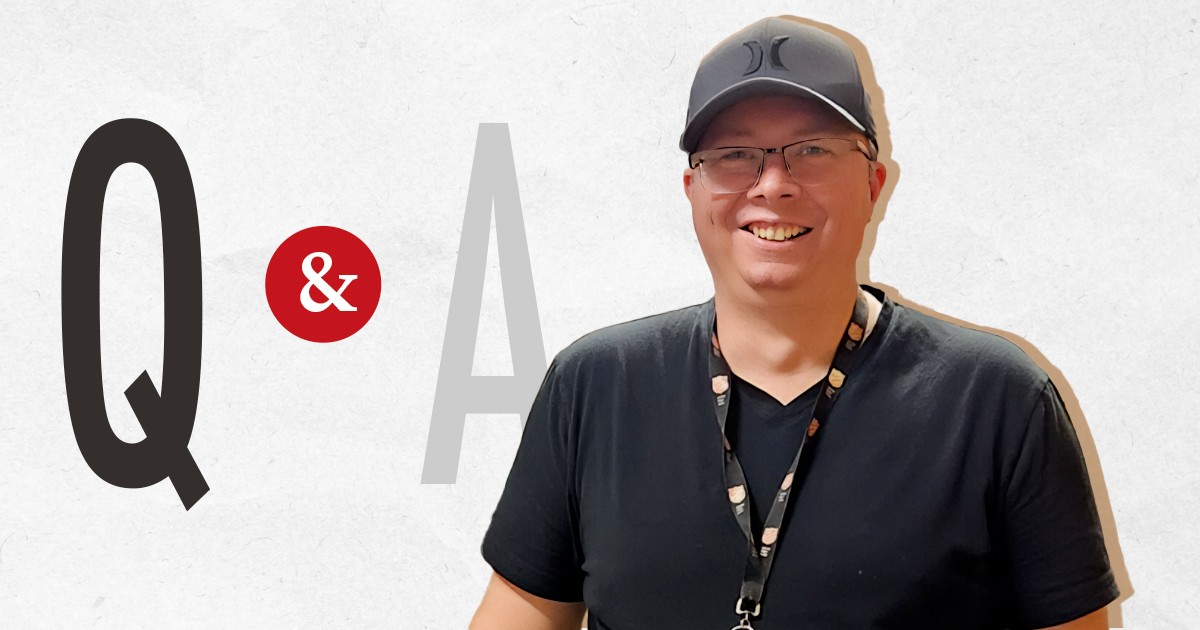Ryan Daw is the community and family services co-ordinator at The Salvation Army in Fort Frances, Ont. In June, he was awarded the King Charles III Coronation Medal, which recognizes individuals who have made a significant contribution to their communities.
Tell us a little about your family and early years.
I grew up in Emo, a small, close-knit, rural township in northwestern Ontario, nestled along the Rainy River near the border with Minnesota. With a population of around 1,300, it’s a place where life moves at a slower pace, shaped by its natural beauty, agricultural roots and tight community bonds.
Growing up in a rural town meant life wasn’t always easy—winters were long, and money could be tight—but we faced life’s challenges together. Our family was a lively, resilient crew, bound by a shared sense of humour and an ability to find joy in the simple moments. Family dinners were a riot of storytelling and good-natured ribbing, with laughter that echoed long after the dishes were cleared.
What was your earliest experience of faith?
When I was 11, the arrival of the internet was like opening a window to the world. One evening, curious and unsupervised, I typed “war” into the search bar, expecting pictures of tanks or soldiers. Instead, the screen filled with images of destruction—cities in rubble, families fleeing and children my age with haunted eyes.
The weight of human suffering hit me hard. I’d grown up hearing about God’s love in church, but seeing the reality of war—its chaos and pain—made me wrestle with deeper questions. How could a loving God allow such suffering?
War showed me the world’s brokenness, but it also sparked a sense of God as a force of compassion amidst the chaos. I thought of the Bible stories my mom read to us—David facing Goliath, Jesus comforting the afflicted—and began to see God not just as a distant creator but as a presence calling us to heal what’s broken.
That moment planted a seed: faith wasn’t just about believing in God’s power but about acting on his call to bring hope to a hurting world. It was my first step toward understanding God’s love as a force that forgives, restores and inspires action, a realization that later fuelled my work with The Salvation Army.
What draws you to social work with the Army?
A deep-rooted belief that everyone deserves dignity and a chance to thrive, no matter their circumstances. Growing up in Emo, I saw how poverty could hide in plain sight—families too proud to ask for help, kids wearing worn-out shoes or seniors stretching meager pensions. My childhood, filled with my parents’ generosity and the community’s support, taught me that helping others is a calling. The Salvation Army’s mission, combining practical help with spiritual care, aligns with my faith and desire to make a tangible difference.

What does your work look like on a day-to-day basis?
I start my morning at our small office. My desk is often cluttered with notes and a phone blinking with messages from families needing food, rent assistance or winter clothing. Each message is a story: a single mom whose hours were cut, a senior struggling with heating costs. I listen to each voicemail, jotting down details, and pray for wisdom to help.
My day involves co-ordinating resources—calling local businesses for donations, checking our food bank inventory or meeting with a school to identify kids who need our meal program. Collaboration is key; I work with churches, schools and local government to stretch our resources. Some days, I’m troubleshooting—finding a shelter bed in Fort Frances for an unhoused client or advocating for a family facing eviction. Every task, from paperwork to heartfelt conversations, is driven by the goal to meet immediate needs while planting seeds for long-term stability, reflecting the Army’s mission to serve with love and dignity.
Can you tell us about the meal program you started?
When I began working with The Salvation Army in Fort Frances, I knew that building community connections was crucial to address local needs effectively. One of my first calls was to the co-ordinator at our local school system, who shared a heartbreaking reality: many kids in our rural area were coming to school hungry, unable to focus because they lacked consistent, nutritious meals. Poverty in northwestern Ontario, where job opportunities are scarce and food costs are high, hits families hard. The co-ordinator noted that some children relied on school lunches as their main meal, and weekends were especially tough. This spurred us to pilot a meal program, partnering with the high school to provide healthy breakfasts and lunches, ultimately feeding more than 5,000 children.
In Emo and nearby areas, many families face financial strain, with parents working seasonal jobs or commuting long distances to Fort Frances. Food insecurity is rampant; a 2024 Salvation Army report noted that 58 percent of food-bank users in Canada were first-timers, with parents often skipping meals to feed their kids. Our program provides nutritious food to ensure kids have the energy to learn and grow. Beyond nutrition, it offers stability, letting kids focus on school instead of hunger pangs. The high school’s involvement amplifies our reach, using their kitchen and student volunteers to foster community pride and teach compassion. This initiative isn’t just about food; it’s about giving kids a fair shot. (Learn more about another program Ryan started here.)
The Salvation Army food bank in Fort Frances was recently awarded national accreditation from Food Banks Canada. How will this make a difference to clients?
This accreditation is critical because it elevates the Army’s ability to serve clients in Fort Frances, where rural poverty often goes unnoticed. It ensures access to higher-quality food, more funding and better training, directly benefiting families facing hunger. For clients, it means more than a meal—it’s a lifeline to stability, dignity and hope.










Leave a Comment